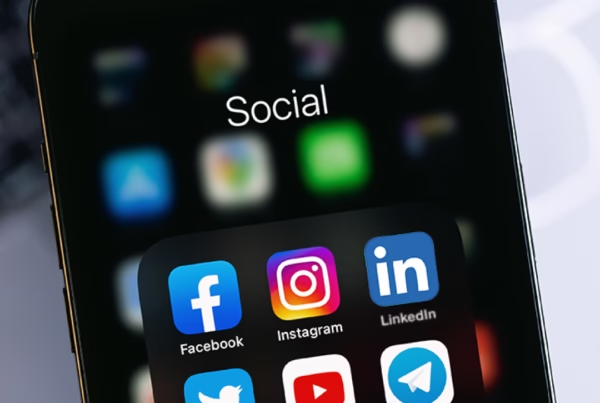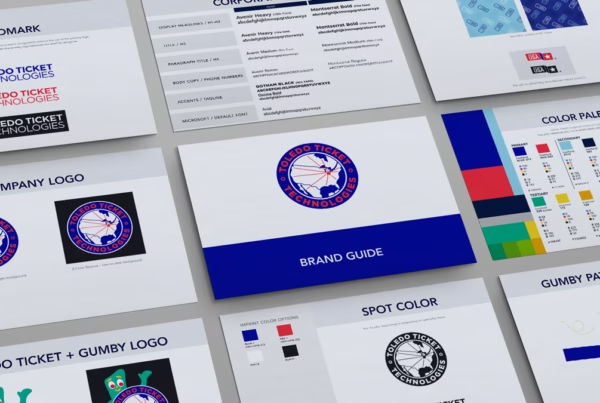With over 69 million Gen Z consumers in the U.S. alone, this mobile-first, socially conscious, and fast-scrolling audience doesn’t just demand relevance—they expect it in under two seconds. From YouTube to TikTok, and voice notes to AI tools, their communication is instant, their standards are high, and their loyalty hinges on authenticity, speed, and values alignment. At Acorn Marketing, we understand what makes Gen Z click—literally and figuratively. Our expert team helps brands connect with this powerful audience using bold messaging, short-form content, and data-backed strategies that inspire action and drive results. If you’re ready to capture the attention of Gen Z consumers and turn curiosity into conversions, you’re in the right place.

Cultural Shifts and Challenges
Generation Z has been raised with new kinds of businesses never seen before, such as Uber, DoorDash, and Airbnb. They have experienced different kinds of relationships and family with same sex marriage and live among the most non-nuclear families ever seen. Gen Z consumers expect brands to reflect their values and want content that is both entertaining and meaningful. This generation was raised on YouTube, Instagram, and streaming platforms. They are not just consuming content; they are creating it first-hand. Gen Zer’s value authenticity, creativity, and individuality. They’ve grown up during times of rapid cultural and social change, making them deeply aware of global issues, mental health, and social justice.
Gen Z is the first generation to integrate artificial intelligence (AI) into their everyday lives. Tools like ChatGPT are commonly used for schoolwork, content creation, business tasks, and everyday problem-solving. From brainstorming to editing, AI is a natural part of Gen Z’s workflow. Yet, with this adoption comes concern: 59% of Gen Z believe AI will eliminate jobs.1
This generation has lived through major global events: the 9/11 aftermath, the 2008 financial crisis, the Covid-19 pandemic, political polarization, and widespread social movements. These events have taken a toll on their mental health. Many Gen Zer’s face anxiety, depression, and burnout, often tied to the burden of financial insecurity, student debt, rising living costs, and economic instability. Still, they are resilient, vocal, and passionate advocates for mental health awareness. In fact, 40% report feeling stressed or anxious most of the time.1
The impact of Covid-19 has completely altered the way that Generation Z lives. From flexible work hours to curbside pickup, they have adapted to convenience right at their fingertips. The oldest members are already well into the workforce, while others are just beginning their careers—often in hybrid or fully remote roles that have become the norm post-pandemic. With a huge shift to remote learning and virtual relationships, the pandemic redefined communication, connection, and engagement. Screentime has increased, which means that marketers now must meet this generation where they are—online, interactive, mobile first, and fast-paced.
Gen Z’s Preferred Communication Methods
Generation Z clicks a few buttons to book an appointment or ask questions through an online chat. This is their preferred method as they are reluctant to make phone calls. Texting is less personable but quicker and more comfortable for this group. Sending voice notes has become a favorite. With all the multitasking Gen Z does, texting allows more room for distraction and fits their on-the-go lifestyle.

Gen Z’s Attention Span and Shopping Behavior
Studies show that 56% of Gen Z participants could remember an ad they watched for less than 2 seconds, a rate two times better than that of participants over age 40.2 Although attention span is short, they demonstrate a strong recall if they are interested in the product or service. If they read good reviews, stories, or watch a video on it, this generation will proceed to the online checkout portal in a matter of minutes. They trust advertising that includes real people over polished brand campaigns and are strategic online shoppers.
Marketing to Generation Z consumers is simple if done the correct way. They prefer fast, easy-to-access content and are quick to keep scrolling if something doesn’t interest them. They are stingy with their time. They readily engage with vertical short formats, such as Instagram reels, TikTok content, Snapchat stories, and YouTube shorts on their phone. Marketing teams have taken notice—44% of marketers planned to incorporate short-form videos into their e-commerce strategies in 2024, with 31% reporting that this format delivers the highest return on investment compared to other content types.2 This generation is quick to purchase from influencers and live with a “money always comes back” mindset. Ironically, many Gen Zers carry significant debt—averaging around $94,000 per person from credit cards, student loans, etc.—and struggle financially despite this optimistic view.3 Their belief in money’s return often clashes with the real-world burden of compounding interest and escalating living costs. This is seemingly good news for marketers aiming to sell to this audience. Gen Z’s “money always comes back” mindset means they are likely more willing to make spontaneous purchases—especially when inspired by influencers or viral trends—because they believe they can quickly earn or save that money again.
That said, Gen Zers appear to splurge intentionally, according to a recent McKinsey report.4 Many of these young consumers open dedicated travel or experience funds alongside their retirement savings. They are deal seekers and use airline miles and credit card points to lower trip expenses.5
Effectively marketing to Generation Z means more than just showing up online—it requires showing up with purpose, personality, and precision. This generation is highly informed, emotionally aware, and digitally fluent. They value speed, creativity, and content that aligns with their beliefs and lifestyle. Brands that want to earn Gen Z’s attention—and more importantly, their trust—must be agile, authentic, and ready to engage across mobile, social, and AI-driven platforms. At Acorn Marketing, we help businesses meet Gen Z where they are and move them to action with marketing strategies that are fast, relevant, and rooted in real connection.
How Acorn Marketing will help you connect with Generation Z:
- Develop authentic messaging that reflects Gen Z’s values and social consciousness.
- Design seamless mobile experiences, from social click-throughs to fast-loading landing pages and checkout flows.
- Personalize campaigns to deliver content that adapts to Gen Z’s real-time behaviors and interests.
- Engage with Gen Z through direct, low-pressure communication channels like online chat, DMs, and voice notes.
- Stay ahead of cultural trends and subcultures—monitor fast-moving Gen Z trends, memes, and niche subcultures to ensure your campaigns are timely, relevant, and resonate with the latest cultural conversations.
- Create loyalty programs that reward customers with perks or savings on future purchases.
- Consider an influencer (or micro-influencer) or brand ambassador program.
Reaching Generation Z takes more than trendy content—it takes insight, strategy, and a deep understanding of what drives them. Acorn Marketing is ready to help you build a brand that clicks with the next generation and moves them to action.
While it’s rare that a brand is aiming to reach consumers who are all of a single generation, and there’s more to targeting than simply understanding your audience’s age or stage of life, it’s all helpful when building out a marketing plan.
Take a look at the other blogs in our Generational Marketing Series below:

Sources:
1. Josh Howarth, “25+ New Generation Z Statistics (2025),” Exploding Topics, April 23, 2025.
2. Patrecia Meliana, “Gen Z Content Marketing: Attention Span vs. Value Perception,” ContentGrip, April 2, 2025.
3. Suzanne Blake, “Gen Z’s Debt Is Way Worse than Other Generations,” Newsweek, June 4, 2025.
4. Becca Coggins, Christina Adams, and Kari Alldredge, “An Update on US Consumer Sentiment: In Response to Tariffs, Most Consumers Plan to Adjust Spending,” McKinsey & Company, May 30, 2025.
5. “30+ Gen Z Travel Statistics and Trends [2025 Update],”30+ Gen Z travel statistics & trends | TravelPerk UK, accessed July 15, 2025.





